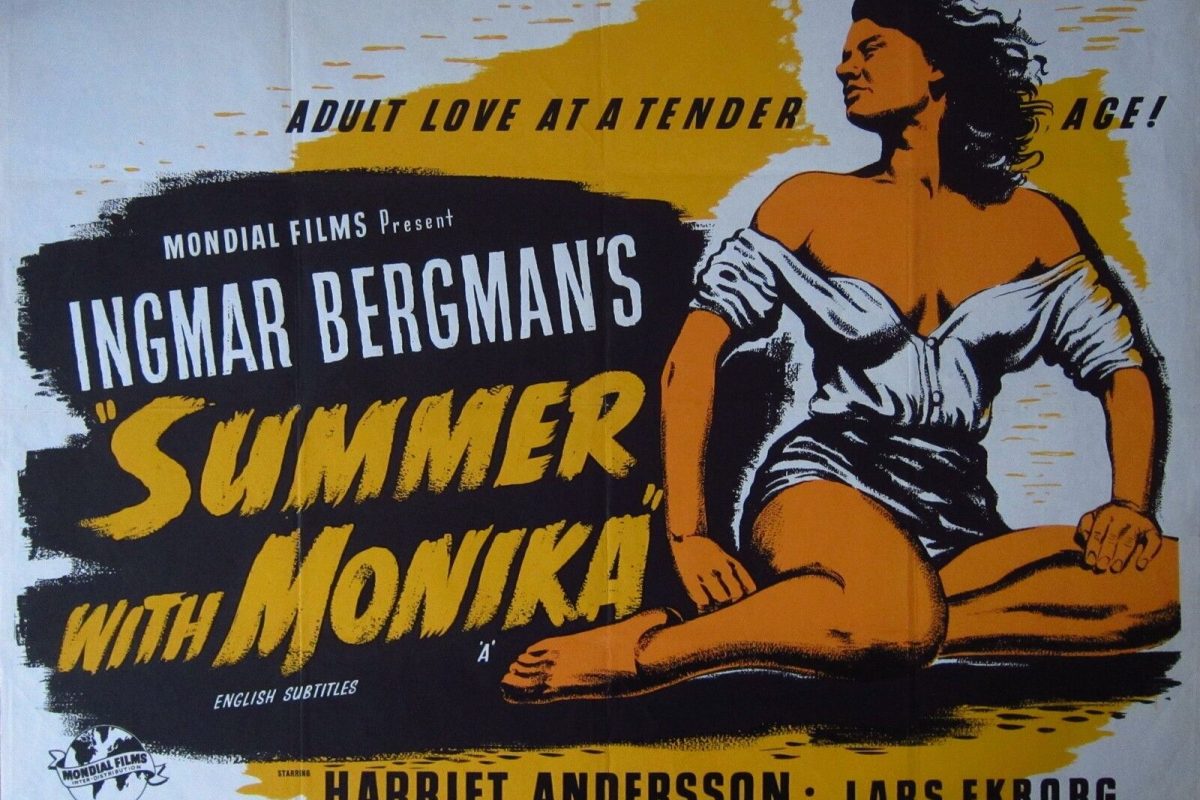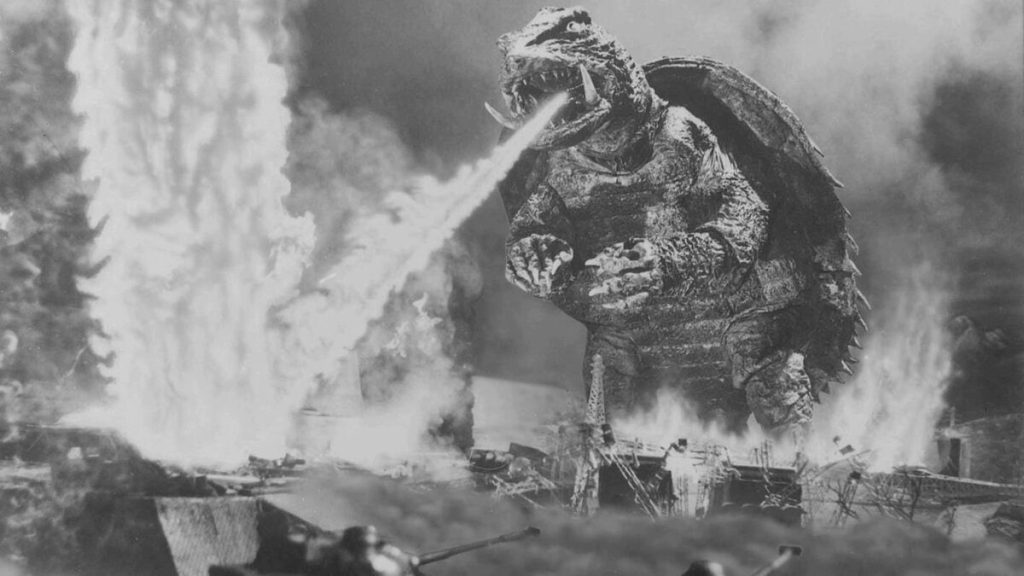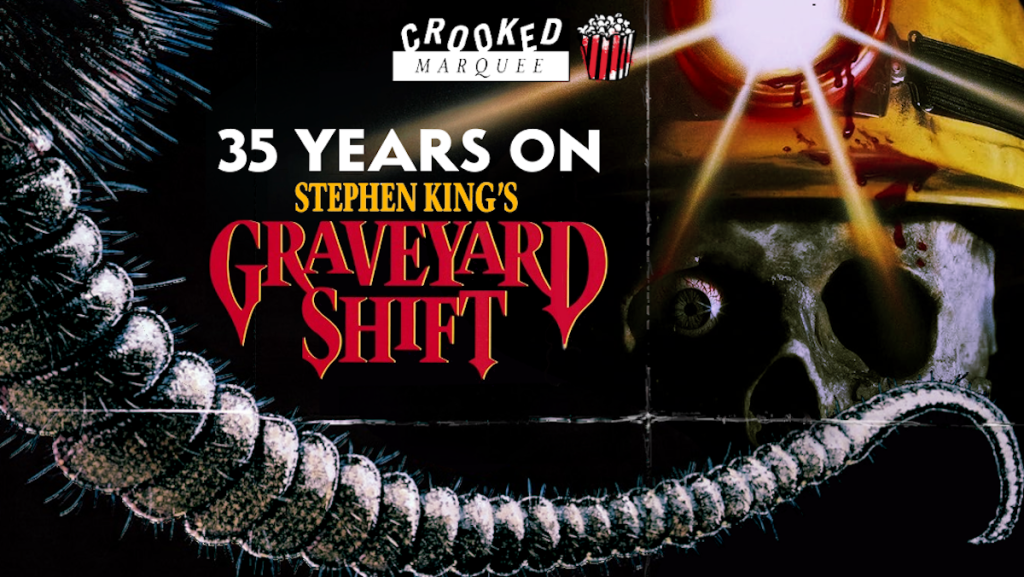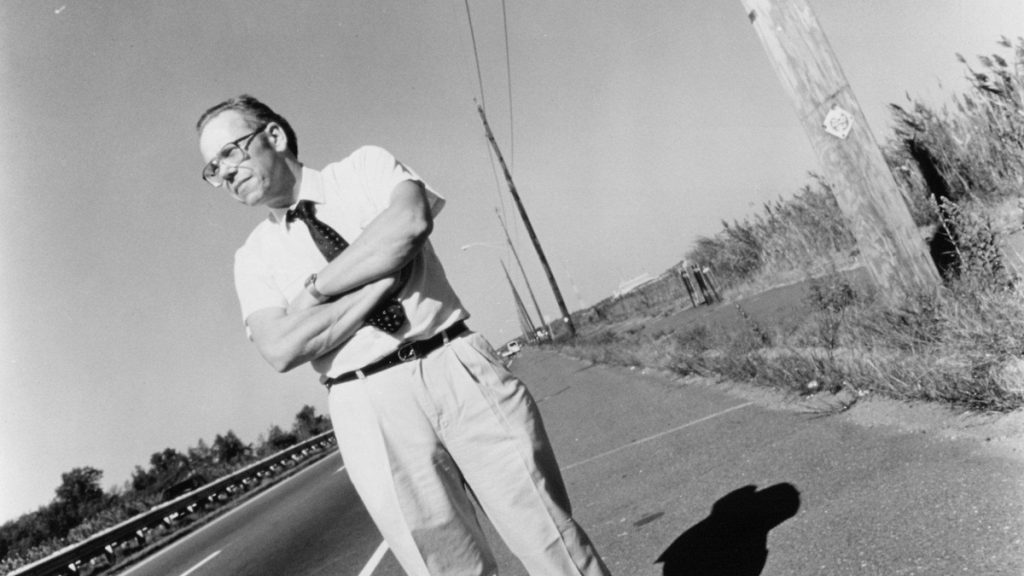It is unfortunate, but not unamusing, that the first Ingmar Bergman movie released in American movie theaters was on the sexploitation circuit. Larger than life hustler-showman Kroger Babb — whose infamous Mom and Dad was one of the highest-grossing films of the 1940s – made his name with titillating morality tales showing just enough skin to squeak by the censors. Passing themselves off as “hygiene films,” these pictures were stern, scold-y affairs about topics like teen pregnancy and venereal disease whose real purpose was to smuggle smut under the guise of educational social issue exposes. (It’s the same mentality by which Hollywood’s Biblical epics were where you could see the most exposed female flesh. False piety has always been a godsend for the prurient.)
It was Babb’s brainstorm that brought Bergman’s 1953 Summer with Monika to these shores two years later as Monika, the Story of a Bad Girl! Chopped down to 62 minutes and dubbed into English with an added jazz soundtrack, the film played on double bills alongside something called Mixed-Up Women. Capitalizing on the scandal surrounding Arne Mattsson’s One Summer of Happiness, such presentations cemented for generations a rule of thumb that Swedish films were full of frolicking nude starlets, a misconception I imagine led to some unpleasant awakenings for anyone who wandered into The Virgin Spring.
Babb’s bastardization of Monika is long out of circulation – I wish it had been included as an extra in Criterion’s Bergman box set — but in watching the director’s original 98-minute edit one can see how it might not take much in the way of restructuring for this material to come off as hysterical. Lars Ekborg stars as Harry, a handsome shlub who’s a verbal punching bag for his miserable bosses at a low-wage warehouse job. But everything changes when he meets Monika – a curvy, luminous wild child played by Bergman muse Harriet Andersson. She basically bulldozes him into taking her on a date to the movies, where Monika gazes wide-eyed at the stars on the silver screen.
One can see why she longs for such an escape, as Monika’s father is an alcoholic moron who smacks around her and her mother. Harry’s home life is more muted, but no less depressing. His old man is a sickly widower with stomach problems who spends most of his time brooding in silence. Fed up with their crummy jobs – she gets groped on a regular basis by her co-workers – the two are revved up with a heady mix of hormones and literature about outlaws when they abruptly quit their gigs and hightail it out of town on Harry’s dad’s old boat.

The two spend an enchanted summer exploring islands of the Stockholm archipelago, presented as a sun-dappled paradise of peek-a-boo nudity. One presumes this segment was the bulk of the Babb edit, as it’s both beautiful and undeniably erotic. Bergman was madly in love with Andersson at the time, and you can feel it in every frame. It was such a joyous time on the set, nobody particularly minded that the entire sequence had been rendered unusable by a scratched camera negative, and they happily went back and shot it again.
But the thing about paradises is that they’re inevitably lost. She soon figures out that she’s pregnant and a return to the real world beckons. Suddenly we’re back to the drudgery of day jobs and night school, living cheaply in cramped quarters with a crying baby, so broke that Monika can’t even afford to go to the movies. She was never cut out for this kind of life.It’s easy to imagine how Babb’s salacious edit painted this “bad girl” who runs off and leaves her hard-working husband holding the baby. What’s unexpected is how much Bergman seems to empathize with a character most other movies would treat with scorn. (You get the sense the filmmaker doesn’t care for Harry very much. He’s kind of a drip.) In the film’s most famous moment, Bergman holds the camera close on Andersson’s face after she lights a cigarette. She turns and gazes directly into the lens as the background behind her is plunged into darkness. A young movie critic named Jean-Luc Godard rhapsodized about how the actress “stares fixedly into the camera, her laughing eyes clouded with confusion and calls on us to witness her disgust at involuntarily choosing hell instead of heaven. It is the saddest shot in the history of cinema.”
Except Bergman doesn’t seem to see the domesticity she’s ditching as any sort of heaven, no matter what Godard said. A scene of Harry being kept up all night by the crying baby could be something out of Eraserhead. There’s not much solace in the straight world, and the film leaves Harry wandering in the ruins of the old warehouse where he worked when he met Monika, haunted by flashback memories of a summer that, like all summers, can only last for so long.
“Summer with Monika” is streaming on Kanopy and the Criterion Channel.



